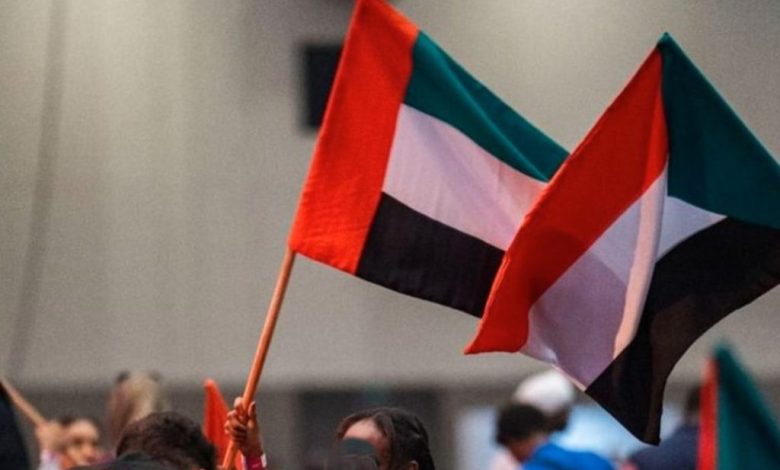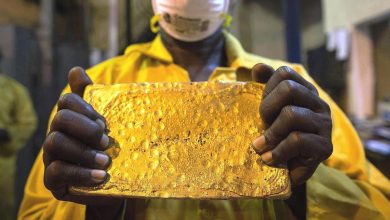Sudan: Potential Economic Impacts of Severing Diplomatic Ties with the UAE

Report by Nazik Shammam
The announcement by Sudan’s Security and Defense Council to sever diplomatic relations with the United Arab Emirates (UAE) has been widely received by the Sudanese public, especially following the attacks targeting vital facilities in Port Sudan—the country’s main port on the Red Sea.
Since last Sunday, suicide and strategic drones have targeted Port Sudan Airport, strategic oil depots, the southern port, the power conversion station, and Marina Hotel. Sudanese army defenses also repelled a drone attack on Flamingo Base on the Red Sea coast on Wednesday morning.
Sudan has accused the UAE of supporting the Rapid Support Forces (RSF) militia in its ongoing war against the Sudanese army, now entering its third year. These accusations have intensified following repeated attacks on Port Sudan using advanced weapons that hit specific targets.
Despite the strong economic ties between Abu Dhabi and Khartoum before the war, the Security and Defense Council’s declaration of the UAE as a hostile state triggered a strong response among Sudanese businesspeople, many of whom reportedly canceled their business licenses and ceased operations in the UAE, according to social media sources.
Emirati investments and development financing in Sudan total around 28 billion dirhams ($7.6 billion), including $6 billion in agriculture. As of 2018, 17 Emirati companies operated in various sectors in Sudan such as agriculture, tourism, aviation, oil, and gas, according to the UAE News Agency (WAM).
Many Sudanese citizens have expressed concern over the future of Bank of Khartoum’s mobile banking application “Bankak”, which is widely used for financial and banking transactions. This concern stems from the fact that 42% of Bank of Khartoum’s shares are owned by Gulf/Middle East entities, such as Dubai Islamic Bank (the largest shareholder), Islamic Development Bank in Jeddah, Abu Dhabi Islamic Bank, Sharjah Islamic Bank, among others.
However, Bank of Khartoum reassured customers in a statement on Tuesday that the “Bankak” app remains fully operational, continuing to provide banking services across Sudan. The bank emphasized that it operates under Sudanese law and is regulated by the Central Bank of Sudan.
The bank further clarified that rumors about “Bankak” being shut down due to the severance of relations with the UAE are baseless, explaining that the app relies on servers located in multiple countries—not solely in the UAE.
A source from the Sudanese Employers Federation noted that the commercial consequences of severing ties with Abu Dhabi may be more significant than the broader economic impact, given that the UAE is Sudan’s primary export partner and second-largest import partner.
“The UAE is the main market for Sudanese gold exports,” the source stated, suggesting that this sector will be particularly affected. However, he noted that the current development involves only diplomatic ties and may not affect other types of relations.
The source told Al-Muhaqiq that the greatest impact may hit the transport sector, especially air transport, affecting cargo movement to and from Sudan. He proposed solutions such as using alternative airports and indirect flights to the UAE.
He downplayed the potential impact on imports of strategic commodities like petroleum products and sugar, noting that these can be sourced from other countries.
The most serious effects, according to the source, will be felt in banking transactions and foreign remittances, especially those processed through Sudanese bank branches in Dubai and Abu Dhabi. He added that the decision may encourage Sudan to reduce its dependence on Dubai for banking, which he described as unhealthy for the Sudanese economy.
He also pointed out that the UAE will feel some economic impact as well, given its large-scale investments in Sudan.
Economic journalist Abdelwahab Jumaa said the economic impact of severing ties with the UAE will likely be short-term. He explained that the historic ties between the two countries, particularly during the U.S. economic sanctions era, led Sudan to rely on Dubai as a trade hub, with many exporters and importers using the Emirati dirham in their transactions.
Speaking to Al-Muhaqiq, Jumaa added that although Sudan’s reliance on the dirham decreased after the sanctions were lifted, many traders continued doing business via the UAE out of habit.
He sees the Security and Defense Council’s decision as an opportunity to open up to East Asian countries, which could help offset the potential economic fallout from cutting ties with the UAE.
Jumaa highlighted that the gold export sector would be most affected, as the UAE is the primary destination for Sudanese gold. Dubai’s gold exchange is also heavily relied upon by exporters.
He proposed storing more gold within Sudan to increase national reserves and build up strategic gold stockpiles. Jumaa emphasized the need for the Central Bank of Sudan to adopt policies encouraging domestic gold purchases to enhance the balance of payments and build long-term reserves.
He also noted that this situation presents a major opportunity to expand trade with China, especially as U.S. tariffs on Chinese goods have prompted Beijing to seek alternative markets. This, Jumaa said, is a golden chance for Sudan to explore new partners to replace the UAE.
Former President of the National Chamber of Importers, Al-Sadiq Haj Ali, also believes that severing diplomatic ties with the UAE could lead to various economic repercussions.
He identified the most significant impact as a potential decline in Emirati investments in Sudan. The UAE has been a major investor, especially in agriculture (e.g., the Amtaar project), telecommunications, banking, and ports. A preliminary agreement was signed two years ago to construct Abu Amama Port on the Red Sea through a partnership involving Abu Dhabi Investment Authority and Sudanese private firms.
Speaking to Al-Muhaqiq, Haj Ali said: “The severance could lead to freezing or withdrawal of existing investments, and deter future ones, which would impact job creation and economic growth, while also making it harder to attract new foreign investment.”
He also pointed out that trade could be disrupted, as the UAE is an important market for Sudanese exports such as fodder, meat, and especially gold, and a source of key imports including petroleum products and other essential goods. This disruption could lead to higher trading costs and reduced revenues.
Haj Ali noted that the decision could also affect financial remittances, with thousands of Sudanese working in the UAE. Disruption of these remittances or increased transaction costs could put additional pressure on foreign currency reserves and worsen the hard currency crisis.
Meanwhile, economic expert Dr. Mohamed Tourshin believes that the UAE served as a vital economic outlet for Sudan. Previous regimes relied heavily on the UAE to help circumvent U.S. sanctions.
Speaking to Al-Muhaqiq, Tourshin said that since then, economic ties with the UAE have grown significantly, especially in sectors like gold export. Despite Sudan’s awareness of the UAE’s involvement in supporting the RSF, it refrained from taking decisive action until now.
He added: “Perhaps Sudan was preparing alternative options before making this move.”
“I believe Sudan has succeeded in this regard, and that success will contribute to economic recovery.”
Source: Al-Muhaqiq News Website



